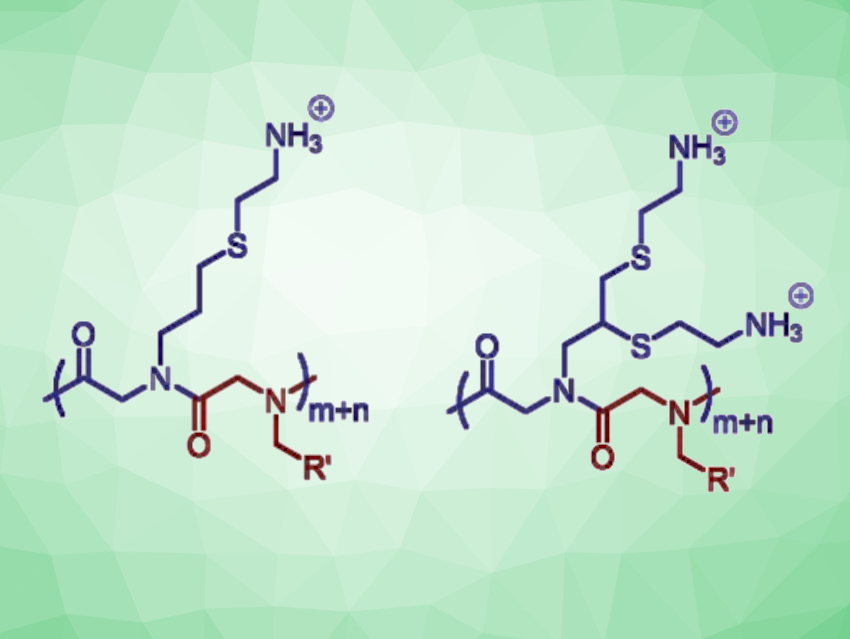Infections with antibiotic-resistant bacteria are important problems in healthcare. Many organisms generate natural antimicrobial peptides (AMPs) to defend themselves against pathogens. AMPs are most often positively charged. They can adhere to the surface of bacteria and kill them by disintegrating the bacterial cell membrane. Due to this mechanism of action, AMPs can overcome drug resistances. However, natural AMPs can be expensive and challenging to manufacture. Synthetic alternatives would, thus, be useful.
Yuanhong Xu, Qingdao University, China, Jing Sun, Jilin University, Changchun, China, and colleagues have synthesized antimicrobial cationic copolypeptoids (general structures pictured) that show a wide spectrum of antibacterial activity and can inhibit the formation of biofilms. Polypeptoids are peptidomimetic polymers with an N-substituted glycine backbone. The team prepared the copolypeptoids via a ring-opening polymerization (ROP) of the monomers, followed by post-modification using thiol-terminated amines.
The hydrophilic/hydrophobic properties of the copolypeptoids can be tuned by changing the substituents on the monomers. Optimized candidates showed excellent broad-spectrum antimicrobial properties, biocompatibility, stability, and potent activity against biofilms. They can also kill multidrug-resistant Staphylococcus aureus (MRSA). According to the researchers, the copolypeptoids could serve as low-cost and highly effective antimicrobial agents in the prevention and treatment of multidrug-resistant infections.
- Antibacterial Copolypeptoids with Potent Activity against Drug Resistant Bacteria and Biofilms, Excellent Stability, and Recycling Property,
Bo Zhang, Meng Zhang, Min Lin, Xinzhe Dong, Xutao Ma, Yuanhong Xu, Jing Sun,
Small 2022, 18, 2106936.
https://doi.org/10.1002/smll.202106936




